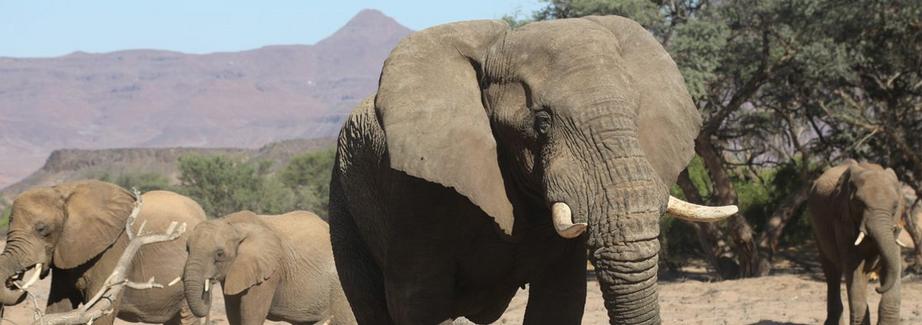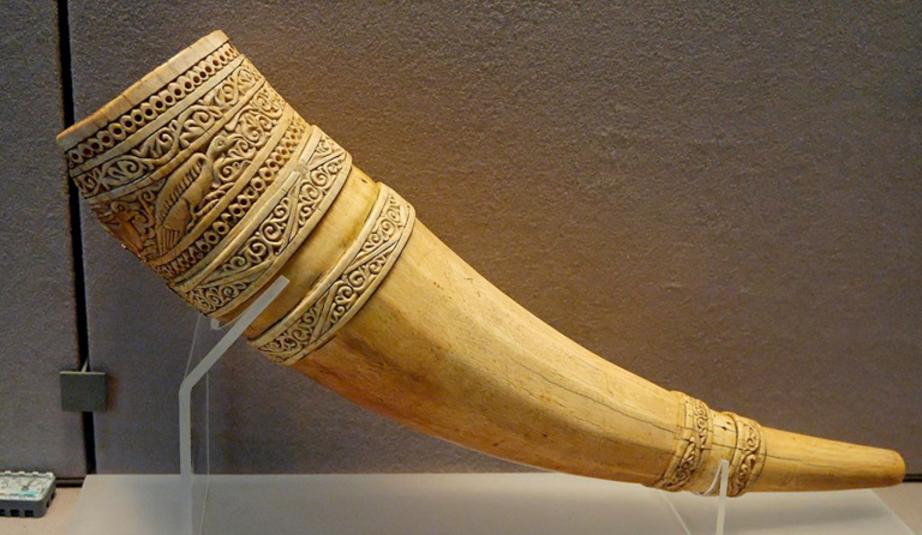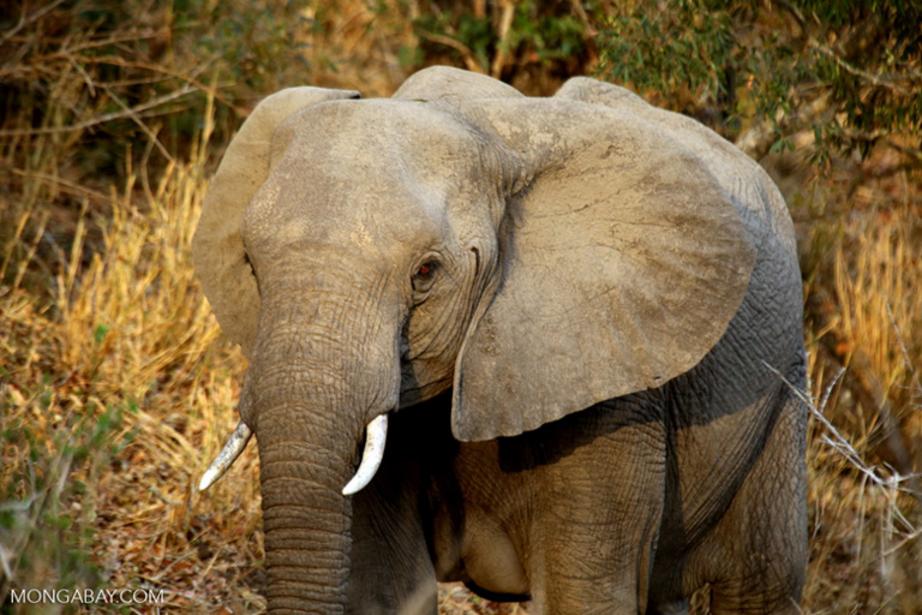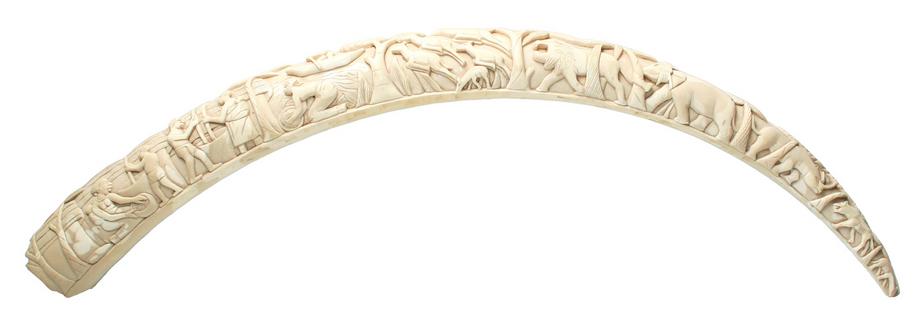U.K. is the world’s biggest exporter of legal ivory
- The United Kingdom legally exported more than 36,000 pieces of ivory between 2010 and 2015, 370 percent more than the United States, the next biggest exporter.
- Over the same time period, the U.K. has been the major supplier for markets in China and Hong Kong.
- EIA and other environmental groups fear that the trade of legal ivory encourages the continued poaching of elephants by perpetuating demand and masking the trade of illegally harvested ivory.
 by Rhett A. Butler
by Rhett A. Butler
The United Kingdom ships more legal ivory beyond its borders than any other country, according to an analysis released today by the London-based NGO Environmental Investigation Agency (EIA).
The announcement comes two days before World Elephant Day on Saturday. Globally, elephant numbers are falling, down 30 percent between 2007 and 2014 — a decline driven largely by poaching to get ahold of elephants’ valuable tusks.
The U.K. plays a “relatively minor” role in the trade of illegal ivory, said Shruti Suresh, a wildlife campaigner with EIA. But data from the Convention on International Trade in Endangered Species of Wild Fauna and Flora (Cites) show that, between 2010 and 2015, the U.K. exported more than three-and-a-half times the number of pieces of ivory exported by the U.S., the next largest supplier.
Through 2013, the U.S. had been a much more prominent player. But regulations by the U.S. government aimed at tackling the national and international trade of ivory slowed the flow to Hong Kong and China to a trickle, down to just 17 items in 2015. The U.K. filled that void, largely with what is referred to as antique ivory that was presumably taken from elephants killed years ago, before Cites began controlling international trade.

The U.K. primarily exports antique ivory, such as this carved tusk from the 11th century. Photo in the public domain, via Wikimedia Commons
“What was even more shocking was the destination of the ivory,” Suresh said in an interview. EIA found that, since 2014, the U.K. has been the top supplier to China and Hong Kong, arguably the biggest markets for ivory, both legal and illegal.
“It is a matter of serious concern that the U.K. continues to foster a big market and that there is ivory being sent to these problem markets in Asia,” Suresh said. Between 2010 and 2015, 70 percent more ivory pieces from the U.K. went there than from the second-ranked country, Italy.
Currently, China allows the sale of legally obtained ivory and products made from it, such as the intricate carvings that can fetch tens of thousands of dollars per piece.
But groups like EIA are concerned that this legal trade masks the illicit trafficking that continues to drive the hunting of elephants. Scientists estimate that every 15 minutes, an elephant falls to a poacher’s gun in Africa.
“It’s extremely difficult to identify legal and illegal ivory,” Suresh said.
“A number of groups have flagged how the legal permitting system for ivory [in China] is fraught with loopholes,” she added, “and legal and illegal ivory is sold side by side in a number of these stores.”
In response to international pressure, China announced in 2016 that it would ban the legal trade of ivory in 2017. Hong Kong, which Suresh said is a major supplier of illegal ivory to the mainland, has also agreed to outlaw the sale of ivory, although traders there have until 2021 to get rid of their stocks.

An elephant in South Africa. Photo by Rhett A. Butler / Mongabay
At a 2016 Cites meeting in Johannesburg, South Africa, 182 countries signed on to a resolution to shutter legal markets for ivory. But Britain has yet to address its own role in this global commerce, Suresh said, allowing its legal market to continue.
“We see what the U.K. is doing right now as potentially undermining China’s announcement,” she added.
EIA staff have also voiced concerns about a potential “loophole” in China’s law that would allow the auction of “cultural relics.”
“The antique industry in the U.K. interpreted that policy announcement as allowing them to continue their business with China,” Suresh said.
The worry is that, even in that form, the trade would still pressure elephant populations and the people trying to protect them.
“There is a growing recognition that any demand for ivory stimulates poaching, is a problem for enforcement and stimulates more demand for ivory,” she said.
Leaders in Britain have promised to hold a public consultation about a change in policy on the ivory trade, but so far EIA and other groups have been waiting at least six months for it to happen.
“This isn’t a new commitment,” Suresh said. “It is now time for the U.K. government to show leadership on this issue and to announce a change in law where ivory can no longer be sold within the U.K. market and ivory cannot be exported [from] the U.K.”
For the rest of this article please go to source link below.

